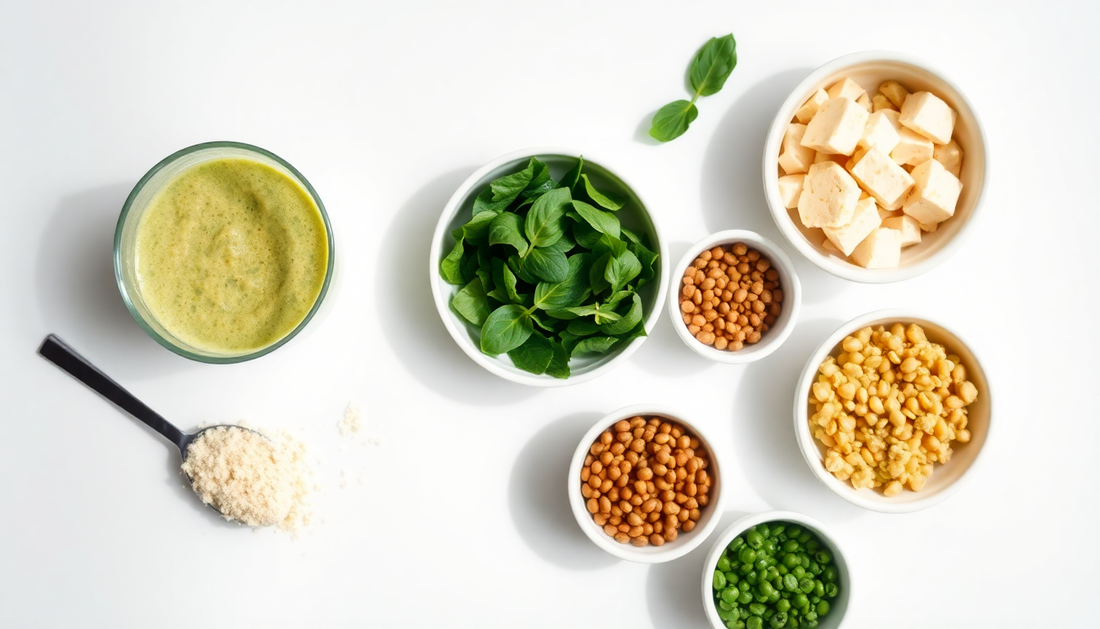
Plant-Based Protein Optimization for Bariatric Patients: A Comprehensive Guide
Share
Understanding Protein Needs After Bariatric Surgery
Bariatric procedures such as gastric bypass, sleeve gastrectomy, and adjustable gastric banding alter nutrient absorption and create unique protein requirements. Post-operative recommendations generally range between 60–120 grams of protein per day depending on activity level and surgery type (ASMBS, 2020).
After surgery, the body’s ability to digest and absorb protein may be compromised, making bioavailable sources essential to ensure muscle preservation, tissue repair, and overall metabolic function (Mechanick et al., 2013).
Plant-Based Protein: Benefits and Challenges
Adopting a plant-based diet post-bariatric surgery offers several advantages:
- Lower saturated fat and cholesterol levels
- Higher fiber and antioxidant intake
- Reduced inflammatory response
- Enhanced gut microbiota diversity (American Journal of Clinical Nutrition, 2020)
However, plant proteins may present bioavailability and digestibility concerns due to antinutrients and incomplete amino acid profiles. These issues must be carefully managed in bariatric patients whose nutrient absorption is already impaired (Nutrition Reviews, 2013).
Selecting Optimal Plant-Based Proteins
Ideal characteristics for bariatric-safe plant proteins include:
- High bioavailability: Easily absorbed, minimally processed isolates like pea, rice, and hemp protein.
- Complete amino acid profiles: Blended proteins that provide all nine essential amino acids (Harvard Health, 2022).
- Low antinutrient content: Reduced phytates and lectins through fermentation, soaking, or sprouting.
- Soy- and dairy-free: Avoid common allergens.
- Digestive ease: Low-fiber, smooth powders with added enzymes to support post-op tolerance.
Protein Optimization Strategies
Supplement Selection
Choose protein powders that meet the above criteria. Look for brands compliant with Good Manufacturing Practices (GMP) and formulated for bariatric patients.
Dosage and Timing
Divide total protein needs into 4–6 small servings daily. Aim for 15–25g per meal to improve absorption (NIH Office of Dietary Supplements).
Complementary Nutrients
Include iron, zinc, and B12 in the supplementation plan—critical for protein metabolism and often deficient post-surgery (JAMA Surgery, 2017).
Meal Planning
Pair legumes, seeds, and whole grains to form complete proteins. For example:
- Quinoa with lentils
- Brown rice with black beans
- Hummus with whole grain pita
Use preparation techniques like pressure cooking or fermentation to reduce antinutrient content.
Monitoring and Adjustment
Track serum protein, albumin, and muscle mass every 3–6 months. Adjust supplementation accordingly with a registered dietitian’s help.
Real-World Case Studies
Case Study 1: Sarah, 42, Gastric Bypass
Struggled to meet protein goals post-surgery. Switched to a hypoallergenic, soy-free plant protein with added enzymes. Achieved normalized protein levels and improved energy within 3 months.
Case Study 2: Michael, 38, Sleeve Gastrectomy
Maintained a vegan diet post-op. Combined pea protein, quinoa, and hemp seeds. Reached protein targets with stable weight and increased lean muscle.
Case Study 3: Olivia, 29, Adjustable Gastric Banding
Faced GI issues and absorption challenges. Found a rice-pea protein blend with digestive enzymes. Showed improved immune function and serum protein status within 6 weeks.
Conclusion
Optimizing plant-based protein after bariatric surgery is not only achievable—it’s sustainable and beneficial. With careful selection of high-quality, bioavailable protein sources and targeted supplementation strategies, bariatric patients can thrive on a plant-based lifestyle.
Through collaboration with dietitians and continuous monitoring, plant-based bariatric nutrition can support wound healing, muscle retention, and long-term weight maintenance.
Medical Disclaimer
This content is for informational purposes only and does not substitute for professional medical advice. Always consult your healthcare provider before starting any new dietary or supplement regimen.
